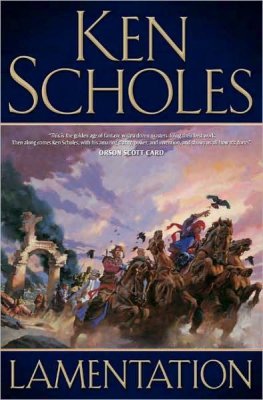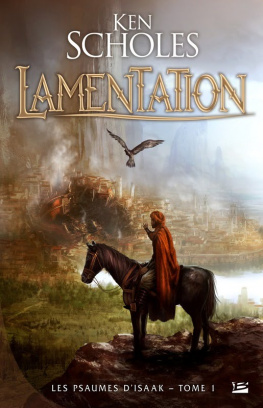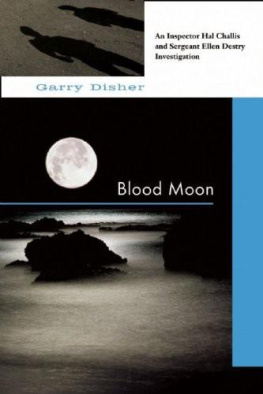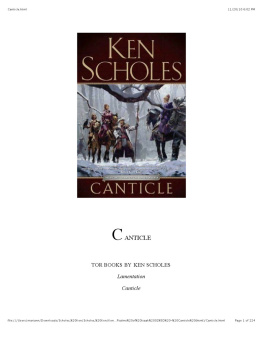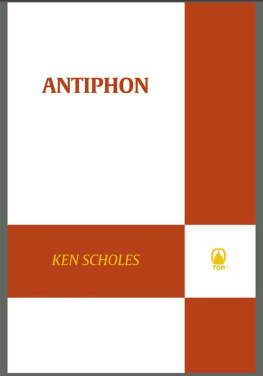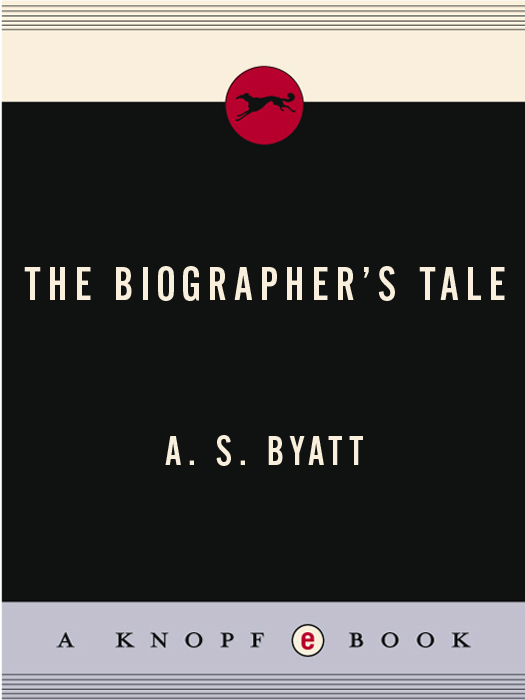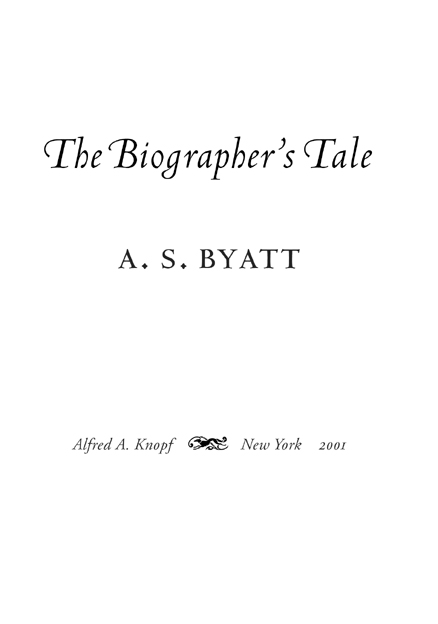ALSO BY A. S. BYATT
Fiction
The Shadow of the Sun
The Game
The Virgin in the Garden
Still Life
Sugar and Other Stories
Possession: A Romance
Angels and Insects
The Matisse Stories
The Djinn in the Nightingales Eye
Babel Tower
Elementals
Criticism
Degrees of Freedom: The Novels of Iris Murdoch
Unruly Times: Wordsworth and Coleridge
Passions of the Mind: Selected Writings
Imagining Characters (with Igns Sodr)
THIS IS A BORZOI BOOK
PUBLISHED BY ALFRED A. KNOPF
Copyright 2000 by A. S. Byatt
All rights reserved under International and Pan-American Copyright
Conventions. Published in the United States by Alfred A. Knopf, a division of Random House, Inc., New York. Distributed by Random House, Inc., New York.
www.aaknopf.com
Originally published in the United Kingdom by Chatto & Windus, an imprint of Random House UK Limited, London, in 2000.
Knopf, Borzoi Books and the colophon are registered trademarks of Random House, Inc.
Grateful acknowledgment is made to the following for permission to reprint previously published material and to reproduce illustrations: HarperCollins Publishers, for quotations from Wilfrid Blunt, The Compleat Naturalist: A Life of Linnaeus (Collins, 1971); David Higham Associates, for quotation from Michael Meyer, Henrik Ibsen, 3 vols., Rupert Hart-Davies (196771); the Linnean Society of London, for the illustrations on ; Methuen Publishing Ltd., for quotations from Ibsen, Peer Gynt, translated by Michael Meyer (1963); Penguin Books Ltd. for quotation from Ibsen, Ghosts and Other Plays, translated by Peter Watts (1964).
Library of Congress Cataloging-in-Publication Data
Byatt, A. S. (Antonia Susan), [date]
The biographers tale / A. S. Byatt 1st American ed.
p. cm.
eISBN: 978-0-375-41342-1
1. Biography as a literary formFiction. 2. BiographersFiction.
3. Young menFiction. I. Title.
PR 6052. Y 2 B 56 2001
823.914dc21 00-062012
v3.1_r1
For Tibor Fischer and Lawrence Norfolk who insisted
Diese Gleichnisreden sind artig und unterhaltend, und wer spielt nicht gern mit Ahnlichkeiten?
These similitudes are charming and entertaining, and who does not enjoy playing with analogies?
Goethe, Wahlverwandtschaften
Contents
I made my decision, abruptly, in the middle of one of Gareth Butchers famous theoretical seminars. He was quoting Empedocles, in his plangent, airy voice. Here sprang up many faces without necks, arms wandered without shoulders, unattached, and eyes strayed alone, in need of foreheads. He frequently quoted Empedocles, usually this passage. We were discussing, not for the first time, Lacans theory of morcellement, the dismemberment of the imagined body. There were twelve postgraduates, including myself, and Professor Ormerod Goode. It was a sunny day and the windows were very dirty. I was looking at the windows, and I thought, Im not going to go on with this anymore. Just like that. It was May 8th 1994. I know that, because my mother had been buried the week before, and Id missed the seminar on Frankenstein.
I dont think my mothers death had anything to do with my decision, though as I set it down, I see it might be construed that way. Its odd that I cant remember what text we were supposed to be studying on that last day. Wed been doing a lot of not-too-long texts written by women. And also quite a lot of Freudwed deconstructed the Wolf Man, and Dora. The fact that I cant remember, though a little humiliating, is symptomatic of the reasons for my abrupt decision. All the seminars, in fact, had a fatal family likeness. They were repetitive in the extreme. We found the same clefts and crevices, transgressions and disintegrations, lures and deceptions beneath, no matter what surface we were scrying. I thought, next we will go on to the phantasmagoria of Bosch, and, in his incantatory way, Butcher obliged. I went on looking at the filthy window above his head, and I thought, I must have things. I know a dirty window is an ancient, well-worn trope for intellectual dissatisfaction and scholarly blindness. The thing is, that the thing was also there. A real, very dirty window, shutting out the sun. A thing.
I was sitting next to Ormerod Goode. Ormerod Goode and Gareth Butcher were joint Heads of Department that year, and Goode, for reasons never made explicit, made it his business to be present at Butchers seminars. This attention was not reciprocated, possibly because Goode was an Anglo-Saxon and Ancient Norse expert, specialising in place-names. Gareth Butcher did not like dead languages, and was not proficient in living ones. He read his Foucault and Lacan in translation, like his Heraclitus and his Empedocles. Ormerod Goode contributed little to the seminars, beyond corrections of factual inaccuracies, which he noticed even when he appeared to be asleep. No one cared much for these interventions. Inaccuracies can be subsumed as an inevitable part of postmodern uncertainty, or play, one or the other or both.
I liked sitting next to Goodemost of the other students didntbecause he made inscrutable notes in ancient runes. Also he drew elaborate patterns of carved, interlaced plants and creaturesCeltic, Viking, I didnt knowoccasionally improper or obscene, always intricate. I liked the runes because I have always liked codes and secret languages, and more simply, because I grew up on Tolkien. I suppose, if the truth were told, I should have to confess that I ended up as a postgraduate student of literature because of an infantile obsession with Gandalfs Middle Earth. I did like poetry too, and I didin self-defencealways know Tolkiens poems werent the real thing. I remember discovering T. S. Eliot. And then Donne and Marvell. Long ago and far away. I dont know, to this day, if Ormerod Goode loved or despised Tolkien. Tolkiens people are sexless and Goodes precisely shadowed graffiti were anything but. Plaisir, consommation, jouissance. Glee. He wasno doubt still isa monumentally larger man. He has a round bald cranium, round gold glasses round round, darkly brown eyes, a round, soft mouth, several chins, a round belly carried comfortably on pillars of legs between columnar arms. I think of him, always, as orotund Ormerod Goode, adding more Os to his plethora, and a nice complex synaesthetic metaphoran accurate oneto my idea of him. Anyway, there I was, next to him, when I made my decision, and when I took my eyes away from the dirty glass there was his BB pencil, hovering lazily, tracing a figleaf, a vine, a thigh, hair, fingers, round shiny fruit.
I found myself walking away beside him, down the corridor, when it was over. I felt a need to confirm my decision by telling someone about it. He walked with a rapid sailing motion, lightly for such a big man. I had almost to run to keep up with him. I should perhaps say, now, that I am a very small man. Small but perfectly formed my father would say, several times a day, before his disappearance. He himself was not much bigger. The family name is Nanson; my full name is Phineas Gilbert NansonI sign myself always Phineas G. Nanson. When I discoveredin a Latin class when I was thirteenthat nanus was the Latin for dwarf, cognate with the French nain, I felt a frisson of excited recognition. I was a little person, the child of a little person, I had a name in a system,


